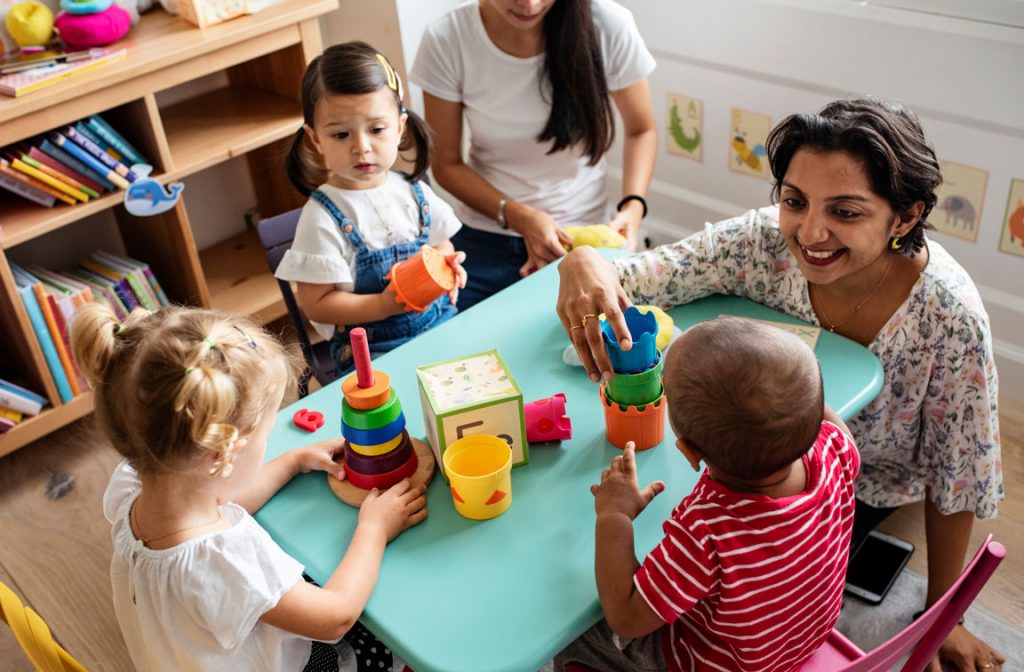The feelings that surround leaving your child at daycare can range from anxiety, sadness, trepidation, and guilt, especially when your child is weeping when you drop them off. Parents may find themselves asking questions like will my child be safe and happy in someone else’s care? Will the daycare help my child grow and develop as I would? Will my child resent me for leaving them? These feelings of guilt are normal, and it is common for parents to get teary-eyed when dropping off their kids at daycare.
There is no question that parents are deeply connected to their children’s emotions. Research from a 2017 study by the Proceedings of the National Academy of Sciences suggests that a mom’s brain naturally reacts to the sound of their infant crying by making her want to pick up their child immediately and comfort them. Therefore, it is no surprise that parents may deal with separation anxiety and experience sadness when leaving their child in someone else’s care. One of the tough parts about leaving your child is the fear that no one else knows the secret to make your child happy. That may be true to a certain extent, but children are surprisingly adaptive. Here are three helpful steps you can take to alleviate this common struggle:

1. Take Time Choosing the Right Childcare
When you have confidence in your caregiver and know your child is in good hands, it will alleviate guilt when your child starts crying as you bring them to daycare. Thus, it’s important to research some important things about the daycare, such as their structure and routine. It’s also important to make sure that the daycare is up to date with CPR/first aid training and vaccination laws.
2. Prepare Ahead of Time
Preparing your feelings in advance tends to make the transition easier, especially when it comes to leaving your sobbing child at daycare. One thing that can help is visiting the daycare with your child a couple of times before they start so that you and your child can both get used to the environment as well as build excitement. Also, getting to know the staff and building a relationship with them early on will make it feel like you’re leaving your child with a friend rather than a stranger.
3. Practice Managing Your Emotions
It is never good to project emotions onto children or assume they are feeling the same thing because this will make the adjustment harder for them. Therefore, it’s important to practice managing your anxiety so that you can be present for your child’s emotions.
When dropping your child off at daycare, it’s tempting to stick around, hoping your child will stop crying. However, this strategy does not work well as the drawn-out good-byes only increase the anxiety in parents as well as in children. Instead, create a good-bye routine with your child and tell them you can’t wait to see them after daycare and hear about all the things they learned.
Daycare Benefits Both You & Your Child
Studies show that it’s good for both parents and children to spend a little time apart because children need to learn how to interact with others while still knowing their parents are always there and available if needed. This helps benefit a child’s cognitive learning and development.
By the same token, parents who do not have a break from their children have a greater chance of feeling burned out, causing major stress.
By following the above steps, you will surely be able to feel less guilty when leaving your crying children in daycare.


